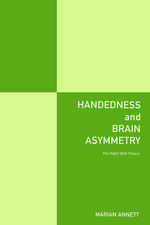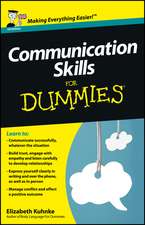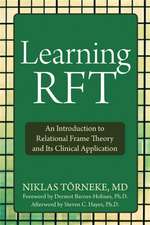Knowledge Representation
Autor Arthur B. Markmanen Limba Engleză Paperback – noi 1998
Organized around types of representations, this book begins with a discussion of the foundations of knowledge representation, then presents discussions of different ways that knowledge representation has been used. Both symbolic and connectionist approaches to representation are discussed and a set of recommendations about the way representations should be used is presented. This work can be used as the basis for a course on knowledge representation or can be read independently. It will be useful to students of psychology as well as people in related disciplines--computer science, philosophy, anthropology, and linguistics--who want an introduction to techniques for knowledge representation.
| Toate formatele și edițiile | Preț | Express |
|---|---|---|
| Paperback (1) | 430.96 lei 6-8 săpt. | |
| Taylor & Francis – noi 1998 | 430.96 lei 6-8 săpt. | |
| Hardback (1) | 1008.48 lei 6-8 săpt. | |
| Taylor & Francis – noi 1998 | 1008.48 lei 6-8 săpt. |
Preț: 430.96 lei
Preț vechi: 507.01 lei
-15% Nou
Puncte Express: 646
Preț estimativ în valută:
82.47€ • 89.55$ • 69.28£
82.47€ • 89.55$ • 69.28£
Carte tipărită la comandă
Livrare economică 22 aprilie-06 mai
Preluare comenzi: 021 569.72.76
Specificații
ISBN-13: 9780805824414
ISBN-10: 0805824413
Pagini: 346
Dimensiuni: 152 x 229 x 21 mm
Greutate: 0.56 kg
Ediția:1
Editura: Taylor & Francis
Colecția Psychology Press
Locul publicării:Oxford, United Kingdom
ISBN-10: 0805824413
Pagini: 346
Dimensiuni: 152 x 229 x 21 mm
Greutate: 0.56 kg
Ediția:1
Editura: Taylor & Francis
Colecția Psychology Press
Locul publicării:Oxford, United Kingdom
Public țintă
ProfessionalCuprins
Contents: Preface. Foundations. Spatial Representations: What Do We Mean by Space? Featural Representations. Network Models. Structured Representations. Structure in Perceptual Representations. Structured Concept Representations. General and Specific Information in Representation. Mental Models. Using Representations.
Recenzii
"Markman is honest from the beginning about the goals of the book. He states in the Preface that he wants to provide a 'Michelin guide to knowledge representation.' At this, Markman succeeds admirably. The book is comprehensive and very well-writen."
—Contemporary Psychology
"...the book is clearly written and would be useful for the advanced undergraduate or beginning graduate student in psychology."
—Journal of Mathematical Psychology
"...Knowledge Representation is well-written and interesting. The book covers a very wide range of topics in order to analyze the forms of representation they use and to identify the advantages and disadvantages of each form. It is unique in both its coverage and its perspective, which make for a fresh approach to the study of how knowledge is represented and processed. It seems likely to become the standard text for courses on this topic."
—Gregory Murphy, PhD
University of Illinois, Urbana-Champaign
"Markman's book does an admirable job of explaining the ideas of representation. It provides a rare perspective, focusing on what kinds of representations have been used in different areas of research, and why. The properties and tradeoffs involved in various types of representations are well illustrated with examples drawn from several areas of cognitive science. Anyone interested in cognitive science will find this book an excellent, enlightening resource."
—Kenneth D. Forbus, PhD
Northwestern University
—Contemporary Psychology
"...the book is clearly written and would be useful for the advanced undergraduate or beginning graduate student in psychology."
—Journal of Mathematical Psychology
"...Knowledge Representation is well-written and interesting. The book covers a very wide range of topics in order to analyze the forms of representation they use and to identify the advantages and disadvantages of each form. It is unique in both its coverage and its perspective, which make for a fresh approach to the study of how knowledge is represented and processed. It seems likely to become the standard text for courses on this topic."
—Gregory Murphy, PhD
University of Illinois, Urbana-Champaign
"Markman's book does an admirable job of explaining the ideas of representation. It provides a rare perspective, focusing on what kinds of representations have been used in different areas of research, and why. The properties and tradeoffs involved in various types of representations are well illustrated with examples drawn from several areas of cognitive science. Anyone interested in cognitive science will find this book an excellent, enlightening resource."
—Kenneth D. Forbus, PhD
Northwestern University
Descriere
This volume is designed as a text for courses or seminars in cognitive psychology and cognitive science where knowledge representation is the central topic or significant focus. Also convenient for professionals brushing up in the area.
























